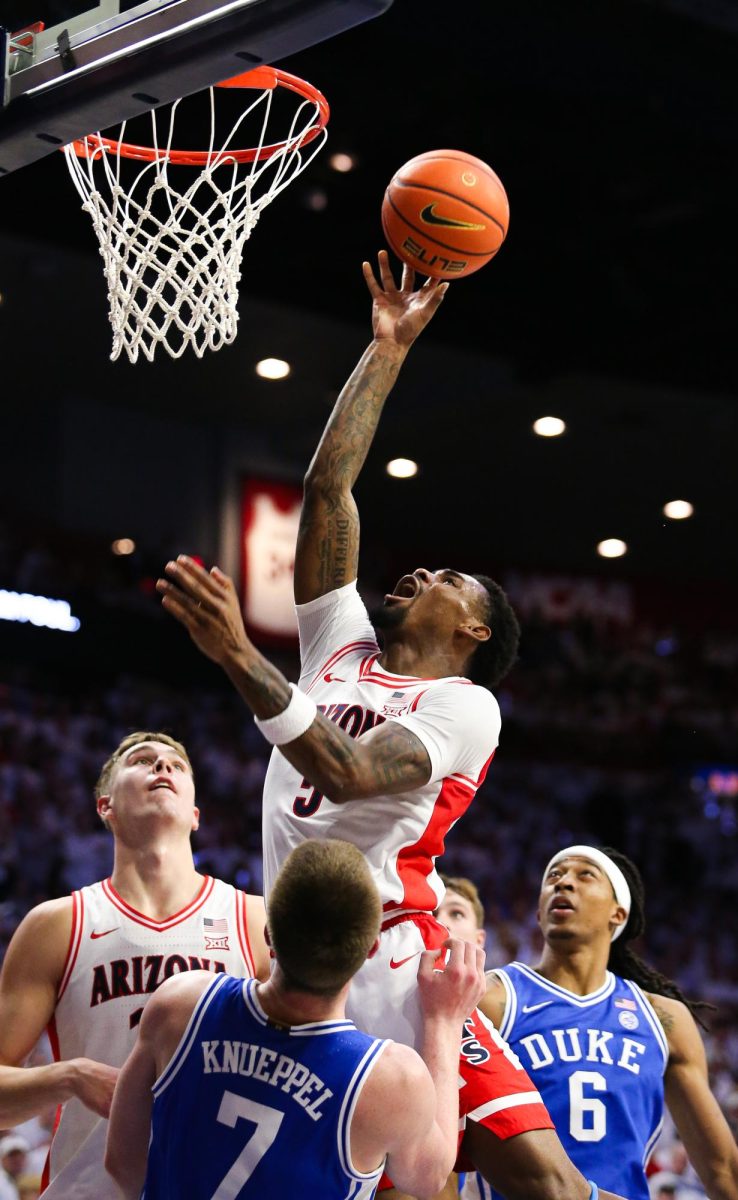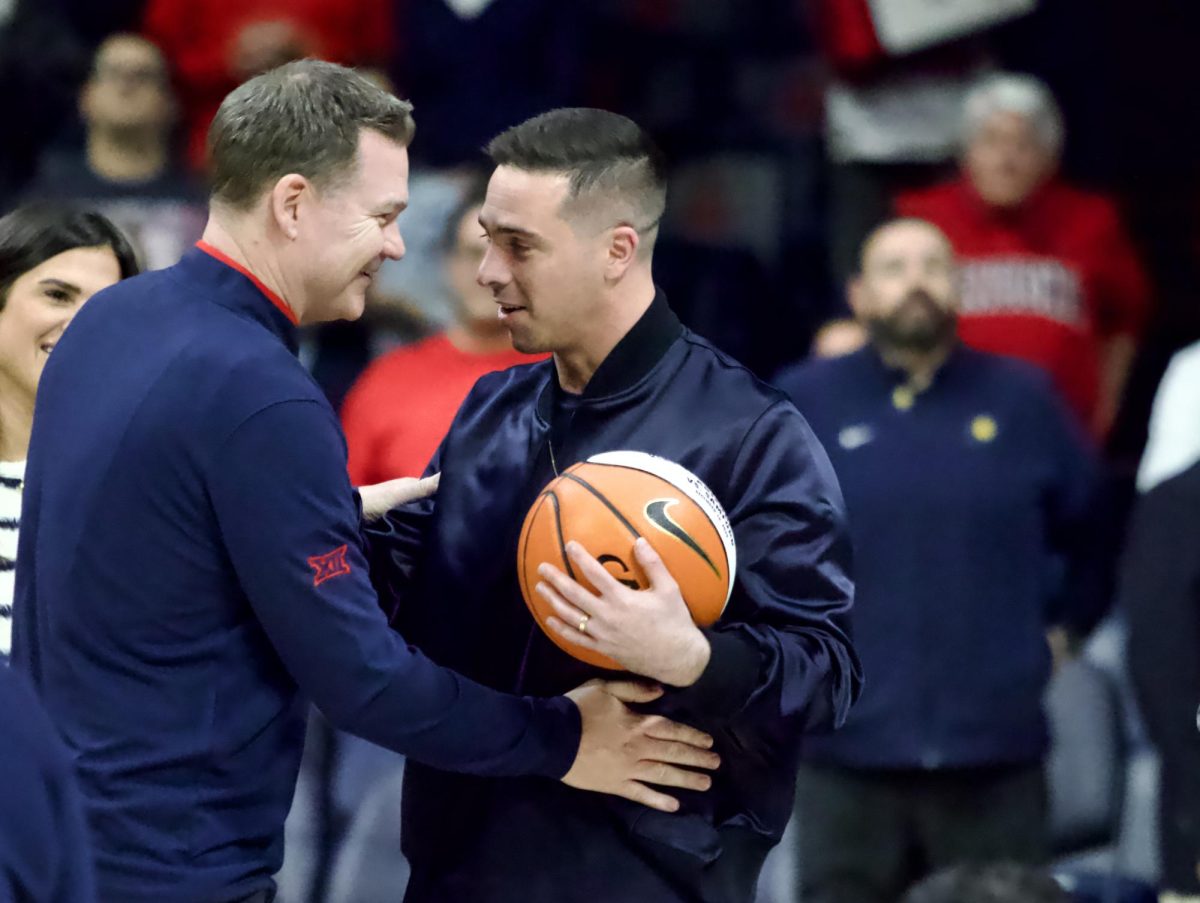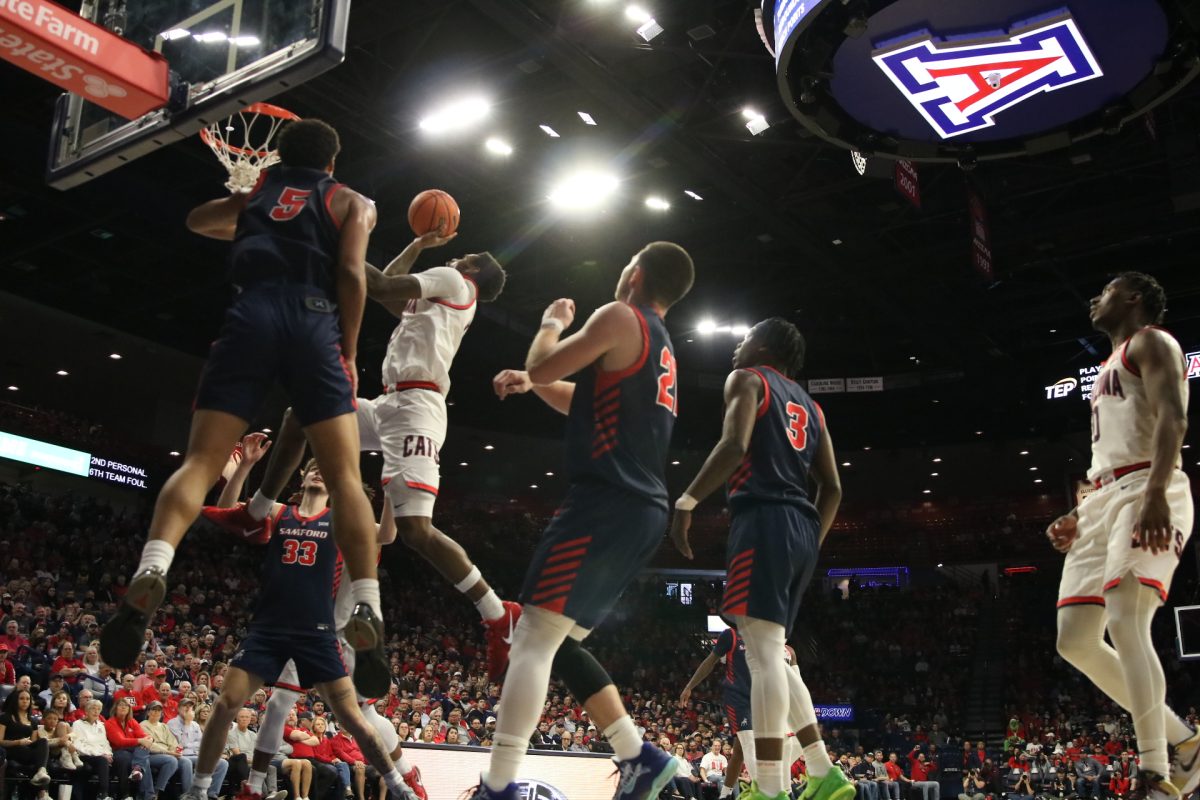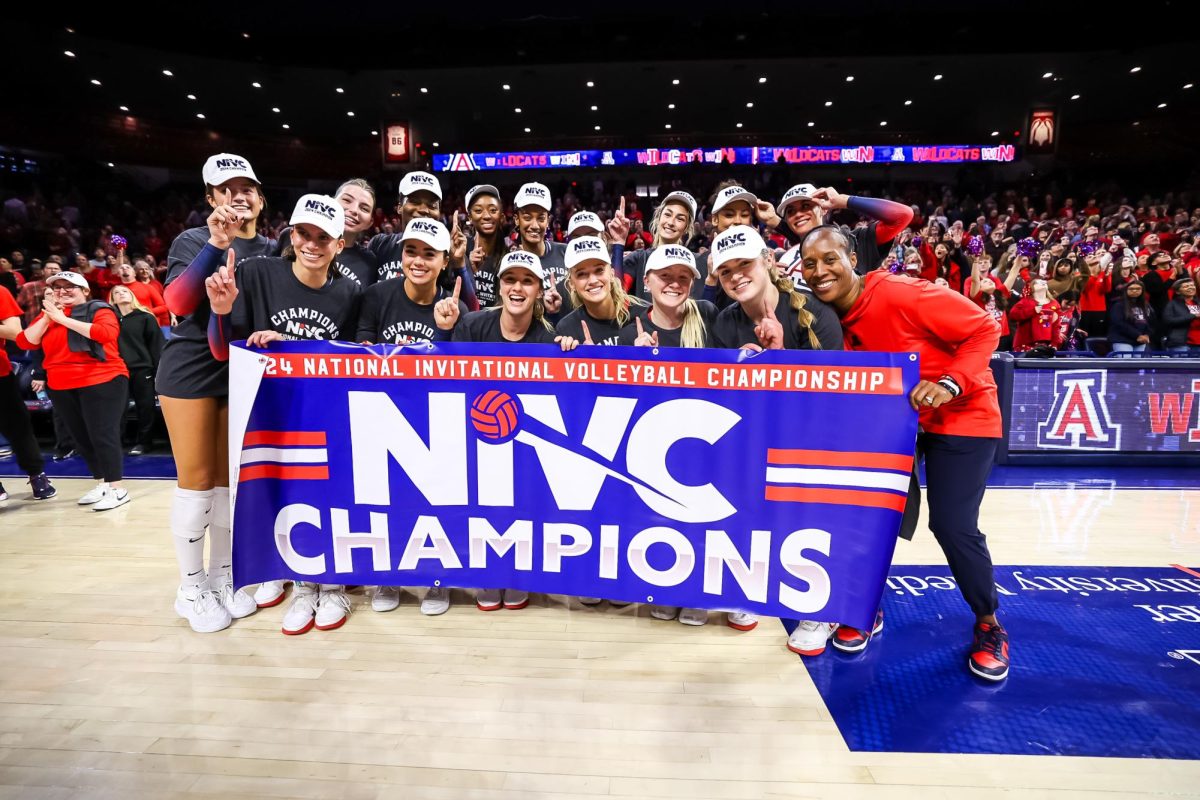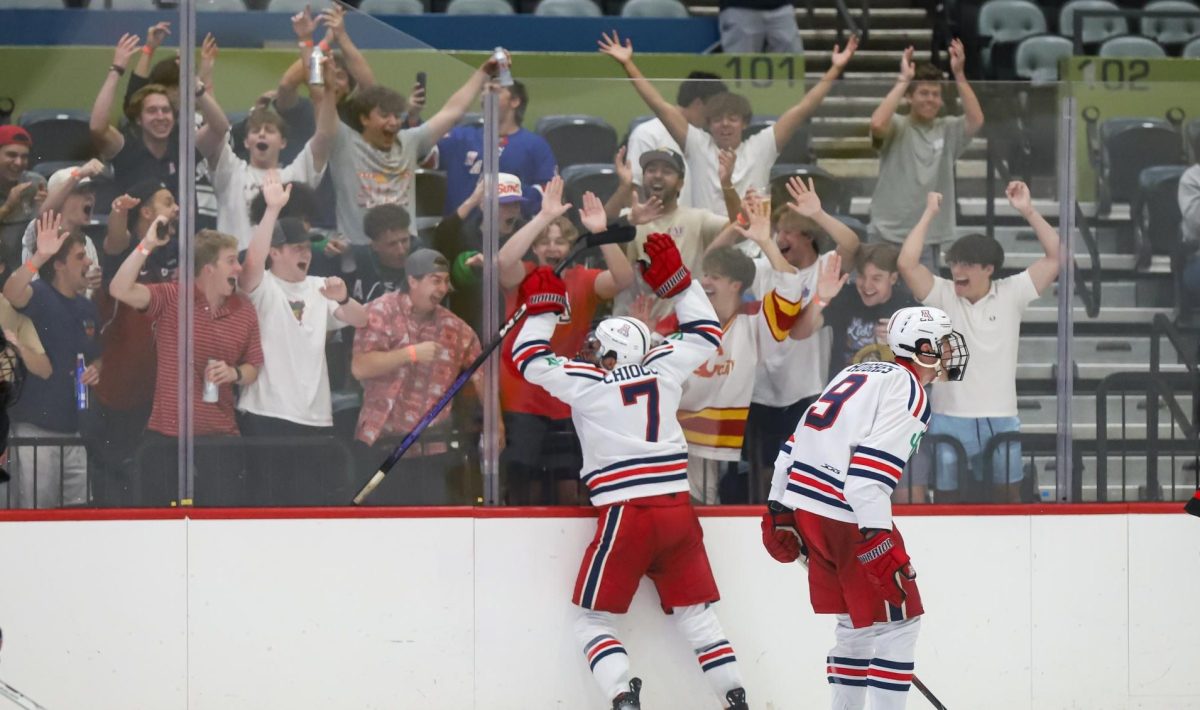Ever since first grade, sophomore hurdler Lezo Urreiztieta said he knew he wanted to be a doctor.
Urreiztieta said he spent his time at Canyon Del Oro High School in Tucson wishing that he could be studying chemistry or physiology, instead of learning things he didn’t care about.
Now that he’s at the UA, he can do just that.
“Knowing that I’m working towards something I want to do with my life is really exciting, and I love it,” Urreiztieta said.
Urreiztieta is currently a pre-physiology major in the Honors College. After he graduates, he intends to go to medical school and eventually become a reconstructive plastic surgeon.
This means Urreiztieta is taking classes that would make some students cringe. He takes 30 units a year to fulfill a requirement for his academic scholarship. On top of that, he attends 18 hours of practice a week and travels for meets.
Urreiztieta has figured out how to balance all of his commitments.
The keys to managing such an intense schedule, Urrieztieta said, are time management, knowing when to say no and knowing when to buckle down and do work.
“I try and break things down and make sure that I know what I have to do,” Urreiztieta said. “If I’m just sitting around and have nothing to do, I figure out what I have to do instead of sitting around doing nothing.”
Urreiztieta’s ability to effectively manage his time did not go unnoticed. Head coach Fred Harvey said those time management skills are evident even in practice.
“There are some athletes who are managing academics … but they’re not competing at the level that [Urreiztieta] is,” Harvey said.
“He comes out with a goal each day. He makes sure the time management is there, that there’s not a lot of wasted time.”
Harvey said that in the track and field program, that there is an expectation that student athletes treat both academics and athletics with the same amount of respect.
“You have to have great time management skills,” Harvey said. “Our responsibility as coaches is to manage that and to give them that opportunity to be as successful in the classroom as they are on the track.”
Urreiztieta has practiced managing athletics and academics.
Throughout high school, he balanced honors courses with playing football and running track. He more than succeeded, graduating with a 4.3 GPA and enjoying a first team all-conference and all-region selection his senior year.
“At first I was kind of worried about track,” Urreiztieta said. “I didn’t know how I was going to handle it because I knew college was going to be a lot different from high school.”
But Urreiztieta said he was excited to learn. He knew that the not everyone had the opportunity he had to receive a good education.
“The thing that I think a lot of athletes don’t really realize is that it’s really a privilege even to go to college,” Urreiztieta said. “There’s a lot of people that would absolutely die to be in your position, not just being an athlete but just getting a good education.”
Although Urreiztieta’s rigorous schedule might seem stressful, he said he’s found relief on the track.
“Practice is my stress reliever,” Urreiztieta said. “It’s a good time to clear my head and do something physical. “My dad has always told me, you’re working towards your future. You just gotta do it. If you put in work now when you don’t want to, it will pay off in the future.”



